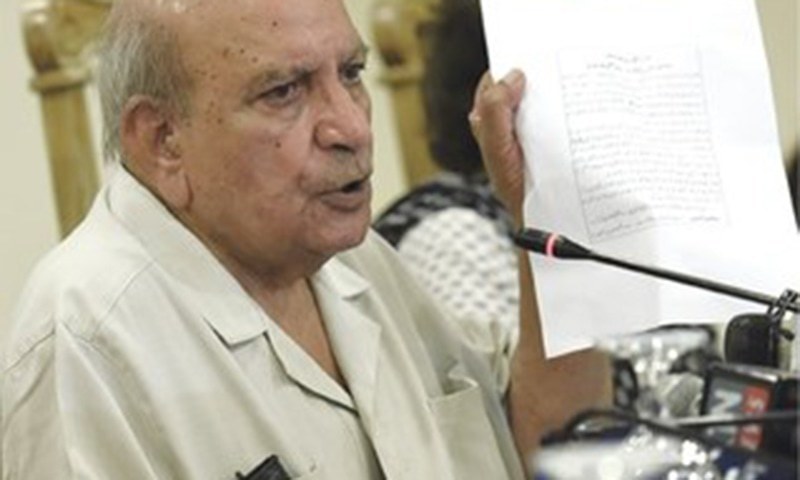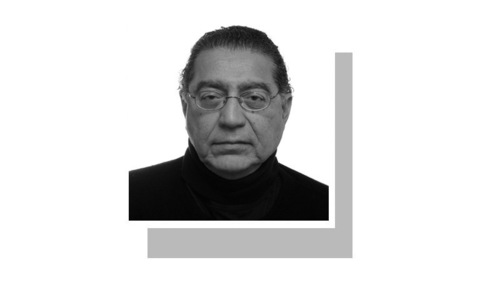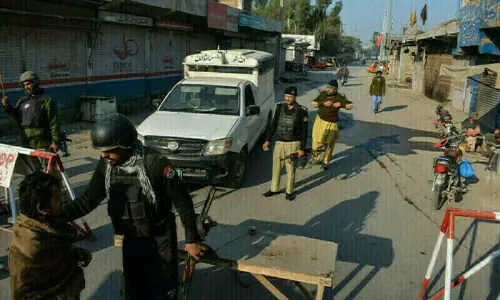LAHORE: Veteran journalist and human rights activist I.A. Rehman on Sunday urged the government to make the 2017-18 Universal Period Review (UPR) of the United Nations Human Rights Council public and present it in parliament, explaining that UNHRC recommendations favour the country and its people.
“The world is not conspiring against Pakistan. The UPR recommendations and the European Union’s G-Plus demands are all in favour of our country and people,” Mr Rehman said, urging the government to take all stakeholders into confidence while presenting Pakistan’s performance on the recommendations for the next UPR.
Mr Rehman was sharing his assessment of Pakistan’s performance during the third UPR in 2017 at the Human Rights Commission of Pakistan (HRCP) office.
The talk was arranged to mark 70th anniversary of the Universal Declaration of Human Rights (UDHR) that Pakistan along with many other countries signed on December 10, 1948. Sir Zafarullah represented Pakistan when the declaration was adopted by the UN General Assembly.
HRCP asks government to take stakeholders into confidence on measures being taken to improve situation
Former HRCP secretary general Mr Rehman, who is currently its honorary spokesman, said Pakistan had a longer relationship with human rights than many other countries in the world, as the beginning was made during the freedom movement. Despite being a colony, the British India was a member of the League of Nations and Sir Zafarullah represented Pakistan when the universal declaration was adopted by the UN General Assembly.
Soon after the creation of Pakistan, two committees — one for determining basic principles of the constitution and another on fundamental rights — were formed, Mr Rehman said, adding that the committee for determining fundamental rights was headed by the Quaid-i-Azam himself.
He said the basic human rights chapter, which was written in 1950, was later made part of Pakistan’s first constitution in 1956. All the constitutions contained the 1950’s chapter of human rights with some amendments, he added.
Elaborating the UPR, the rights activist said that under the auspices of the Human Rights Council, all member states were given the opportunity to declare what actions they had taken to improve the human rights situations in their countries and to meet their human rights obligations.
In 2008, he said, the UPR made 51 recommendations for improvement in human right situation in Pakistan. In 2012, he added, the number of recommendations rose to 167, while it surged to 289 in 2017-18.
Addressing civil society members, students, lawyers, human rights activists and media persons at the event, Mr Rehman said it was a duty of civil society to ask the government to make the recommendations public so that the people could see whether or not the authorities had implemented what had been recommended to them. The recommendations should also be placed before parliament to make the legislators aware of the country’s international human rights obligations.
Besides, he said, the country was required to revise its lists of human rights and their nature as they tended to change with the passage of time.
HRCP chairperson Dr Mehdi Hasan said human rights could not be ensured without introducing true democracy in the country.
Meanwhile, in a statement, the HRCP expressed grave concern over “the exponential rise in the number of recommendations Pakistan has received from its peers with respect to human rights concerns in the country”.
“It is a matter of serious concern that, from 167 recommendations in 2012, Pakistan’s human rights barometer now stands at 289 — [the number of] recommendations received under the third UPR in 2017. Of these, it [the country] has ‘supported’ 168, ‘noted’ 121 and ‘rejected’ four recommendations.
“HRCP strongly urges the state to commit to its willingness to continue cooperating with the United Nations human rights mechanism, and to apply both in principle and practice the UPR recommendations it has ‘noted’ as well as ‘supported’,” it said.
Published in Dawn, December 10th, 2018



































